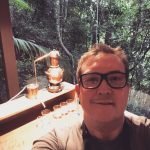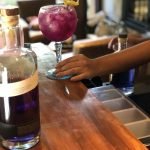Let me preface this with my excuses
I am going through what is probably a mid-life crisis, where giving up my steady job as an Executive for a global technology company, and ‘getting into Gin’ seems like a good idea. Brazil, being quite a few years behind the UK in the Gin Market, still has 3 or maybe 4 years of growth in this sector, and there is still space for newcomers in the Craft Gin business, which is what I intend to do. It is relatively easy to do in terms of not needing massive capital investment, and one could get set up, and producing a premium Gin here within the space of about six months. Of course, this being Brazil, nothing is quite as simple as it might at first seem…
The Original Plan
My original plan was to open a Micro Distillery and Gin School in my property – a country home about 55km outside of Sao Paulo, and on a fairly well established Tourist Route to the town of Sao Roque, famous for its wine, as well as South America’s largest Dry Ski Slope (Ski Mountain). I have a large, 3 bay garage that thanks to some miscommunication between myself and the builder, ended up a lot larger than I had planned, and was dubbed ‘The Giraffe House’ due to its height. With around 95 square metres of constructed space, this would make an ideal distillery and bottling space, leaving another two-storey building for the bar, and Gin School.
Fast forward 5 months from when I first started writing this and a lot has changed, including my view that setting up a micro-distillery in Brazil is relatively easy. It is not!
In the course of the last five months, I have made great progress but am still probably 5 months away from having my first legal bottle of Gin go on sale. I have battled a near-overwhelming level of bureaucracy, had my hopes for basing the business in my property dashed, purchased a plot of land on an industrial estate for my distillery, developed the brand and the online presence, and completed the Distillery Lab & Bar, which is now closed (before it even opened) due to Covid-19.
All that said and done – things are actually moving quite nicely! The market for Gin shows no sign of slowing, and Brazil now has over 110 National Gins available – some of them are very good too! Cheap Gins cost as around £4 a bottle at current exchange rates and a high-quality, small-batch Gin from a Distillery actually making their own product would cost between £15 – £25 for a 750ml bottle. There is not much between the high and low end, and there is very little in the way of flavoured Gins yet, but it will come. Many of the new Gins launching are white-label/OEM Gins made under-license by the Cachaça Distilleries for companies who want a quick entrance into the market, which I have mixed views on, as I feel there should be some value attributed to the craft of distillery, rather than just being able to take a hot-product to market and sell it.
Southwest Destilaria
Southwest Destilaria (the Portuguese word for Distillery) is the company name and brand that I am operating under. I have been quite specific about building a brand around the distillery and not just a single product line like Gin, as I am interested in distilling, and will be making other products – more on this in the future perhaps, but Botanical Vodkas and Spiced Light Rums are things the drinks industry think we should be ‘getting into’.
Southwest has a lot to do with me being born in the Southwest of England, living in Southwest London for much of my adult life, and travelling roughly in a South-Westerly direction to arrive here in Brazil (with some artistic license).
The business has two aspects to it – the Distillery itself, which is under construction, which is a fairly nondescript warehouse with a 200-litre copper still in it, and the Distillery Lab & Bar. This is my visitors centre, where I will be welcoming guests who come to learn a little about Gin and my distillery, how to make a few classic and new cocktails at home, and then after lunch, as the finale, each visitor gets to distil their own Gin in the Distillery Lab, with a mini-copper still that I imported from Portugal.
While this is really not a new concept in the UK, there is only one other place doing it in Brazil, but I would like to think I am offering a more comprehensive experience, as well as a buffet lunch to soak up some of the G&T that is on tap! This part of the business is ready to go – COVID 19 has meant that I, like everyone else, has needed to isolate, and it is just not the right moment to be bringing people together, even with Gin-scented hand-sanitizer!
On the distillery side of the business, I am constructing a metal-frame warehouse about 8 miles from where I live in the countryside, which will house the 200-litre copper still, and the various tanks for storing alcohol, water, and finished product, as well as housing my bottling area. All of this is using an area of around 1,200 square feet.
I have started my approval process with the Ministry of Agriculture and Fisheries who approve the physical installation, the process and the product, as well as with the Environmental Agency, who approves how I use water and how I treat my post-distillation residue. I will be composting most of the solids leftover from the distillery process, and using a variety of systems for rainwater captivation (for the cooling equipment) and photovoltaic panels for electrical generation, used for heating the still.
While none of this is strictly necessary, the ethos of Southwest Destilaria is very much to care for the environment – I will also be donating a percentage of the profits of the business to a local charity that I have supported for a few years now, who help save and rehabilitate injured wildlife from the area – snakes, monkeys, toucans, porcupines and many others. They recently helped remove a 2m long ‘Jararaca’ snake from my woodpile, for releasing safely in a less-populated area!
 This week, I took delivery of my development still – a 15-litre copper still that will produce around 15 750ml bottles per batch. This hand-made copper still comes from the same company making my 200-litre still, and is beautiful! I have chosen the name R2D2, due to the shape and size. R2D2 will help me develop lots of new recipes, for Gins, some Botanical Vodkas I am working on, and later some Brazilian ‘Shine. More on that later.
This week, I took delivery of my development still – a 15-litre copper still that will produce around 15 750ml bottles per batch. This hand-made copper still comes from the same company making my 200-litre still, and is beautiful! I have chosen the name R2D2, due to the shape and size. R2D2 will help me develop lots of new recipes, for Gins, some Botanical Vodkas I am working on, and later some Brazilian ‘Shine. More on that later.
Next steps are to get my distillery opened, operational and licensed – until then, keep safe and healthy!

Born in Britain, Alex Rudd’s love for gin started early and hasn’t left him now that he lives in Brazil.
From the gin scene in Brazil to the trials of becoming a distiller and opening his own distillery, Alex will be sharing his views from the still here on theGin.Blog!
Follow us on Facebook and Instagram and check out the Gin Forum on Facebook!
If you want us to review your gin or you fancy writing for the Gin Blog then contact us now








No Comments